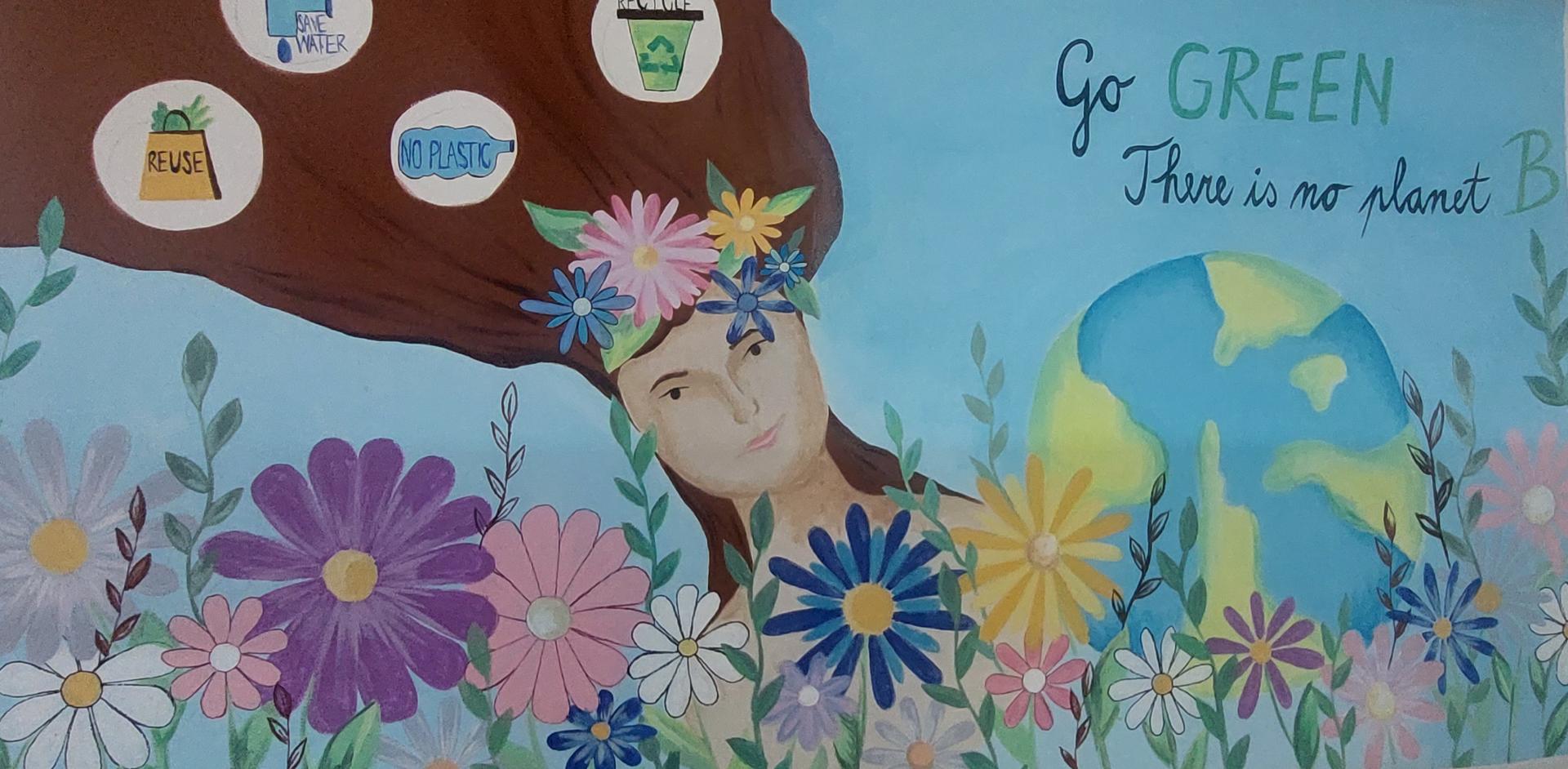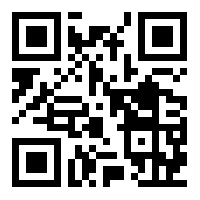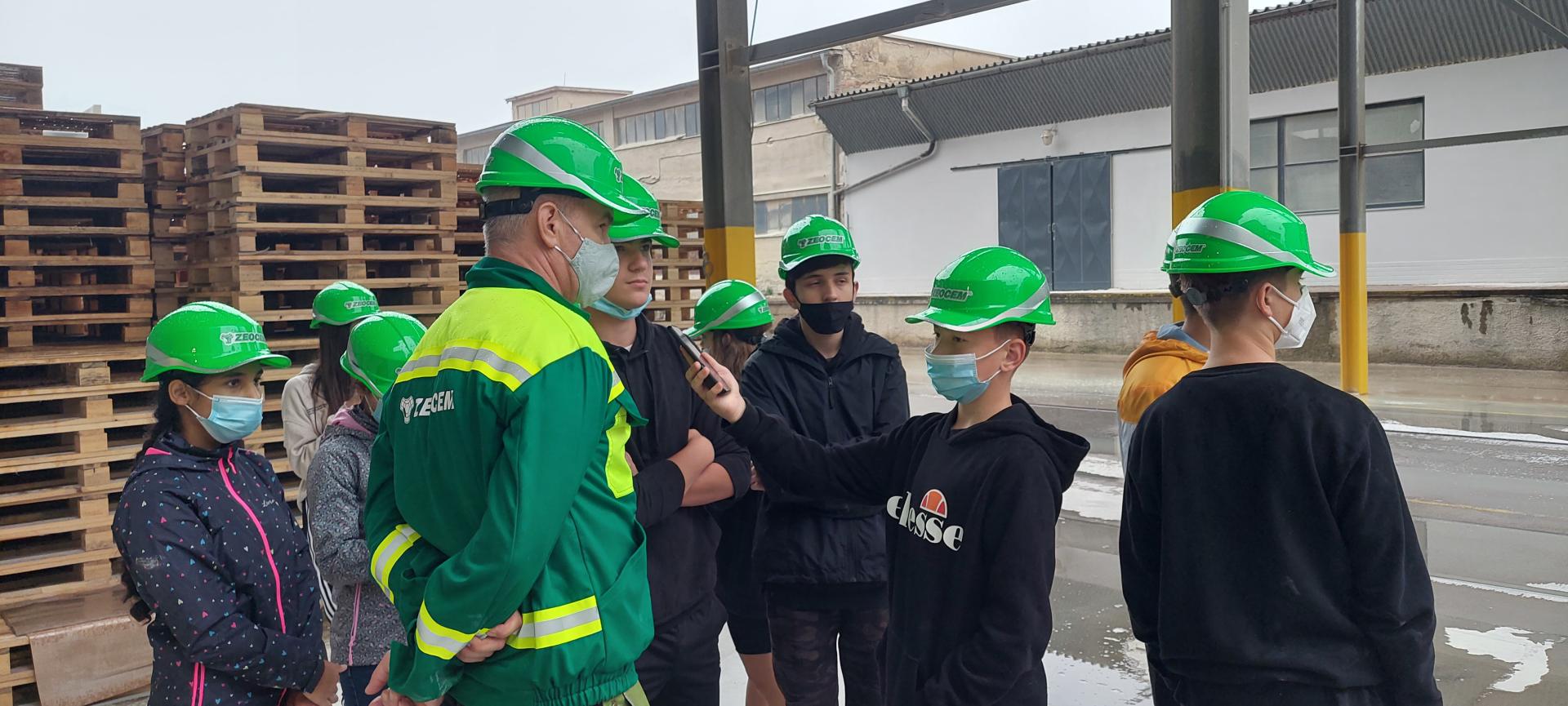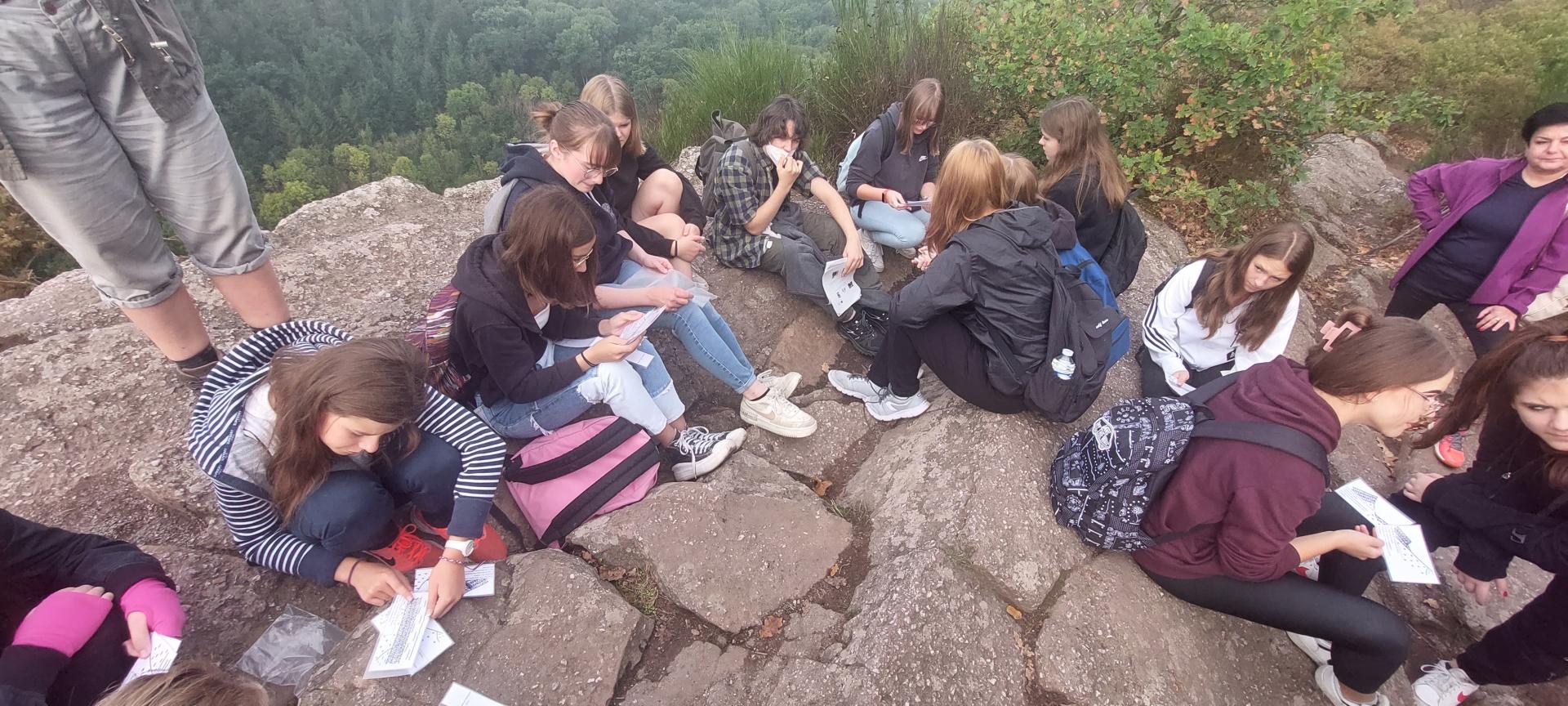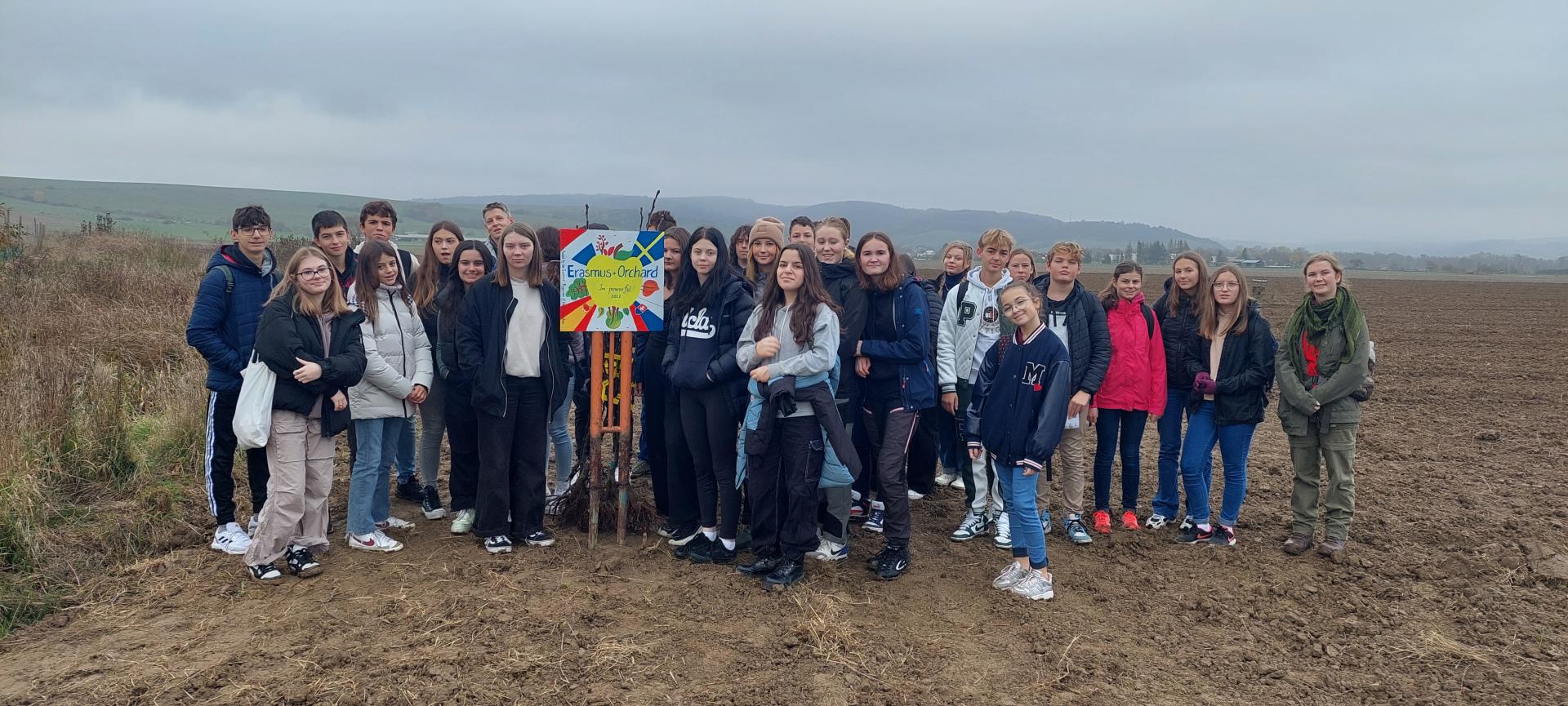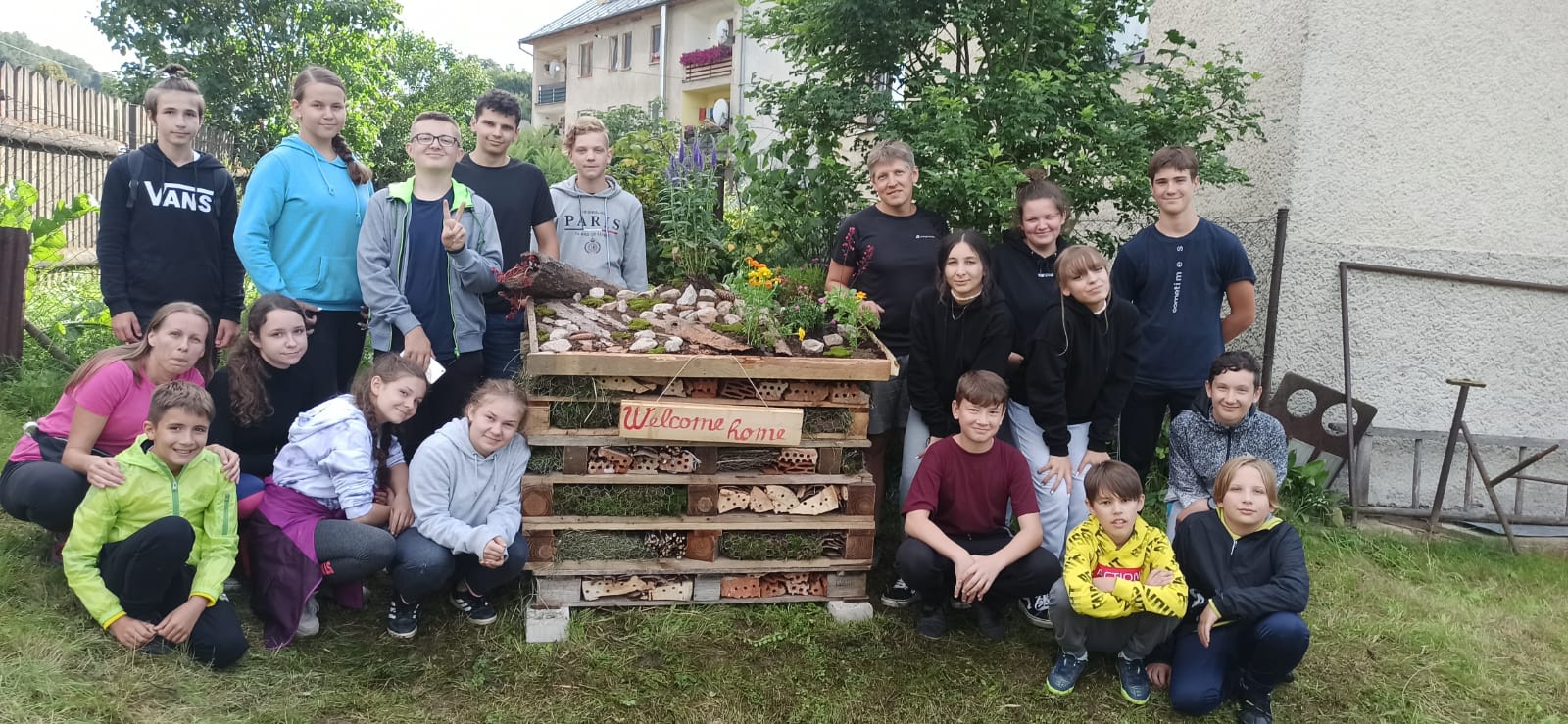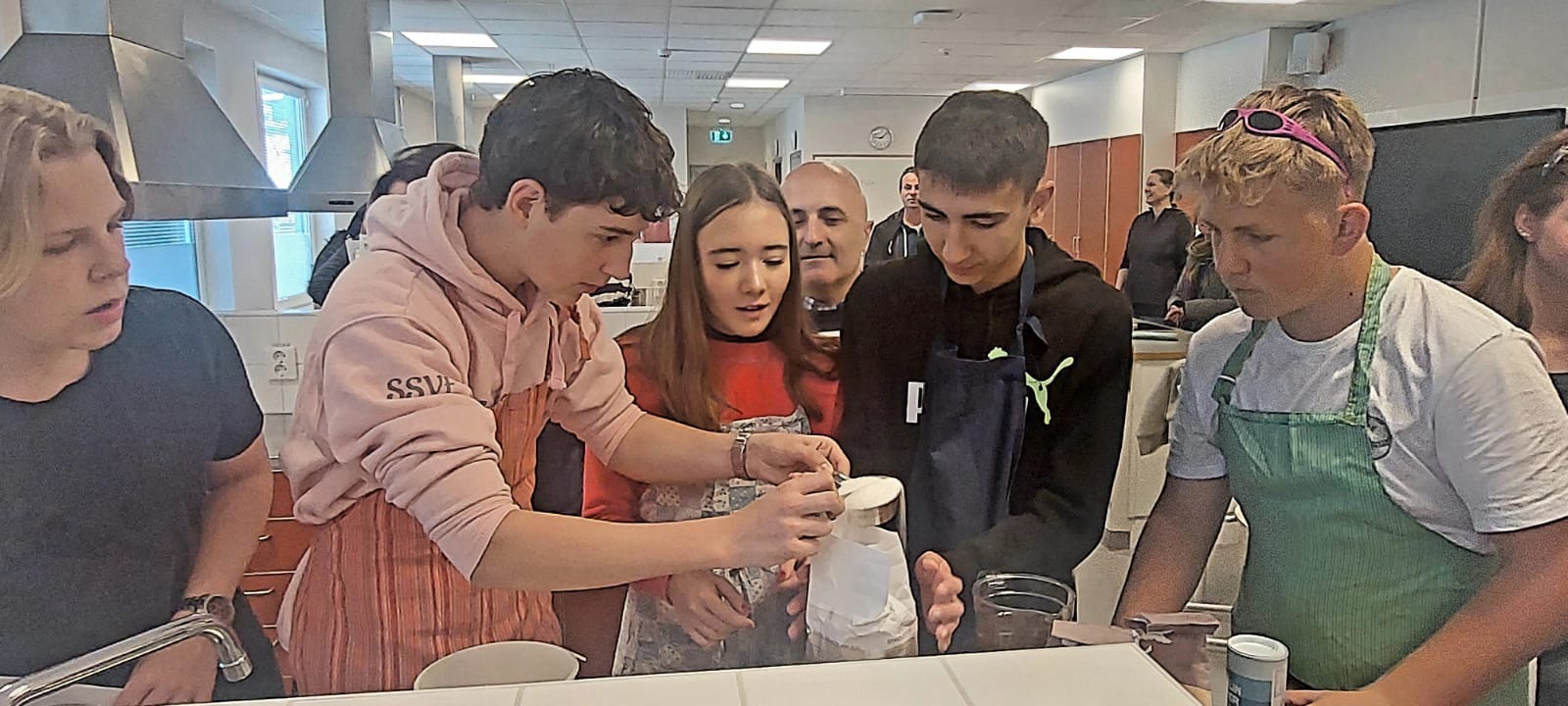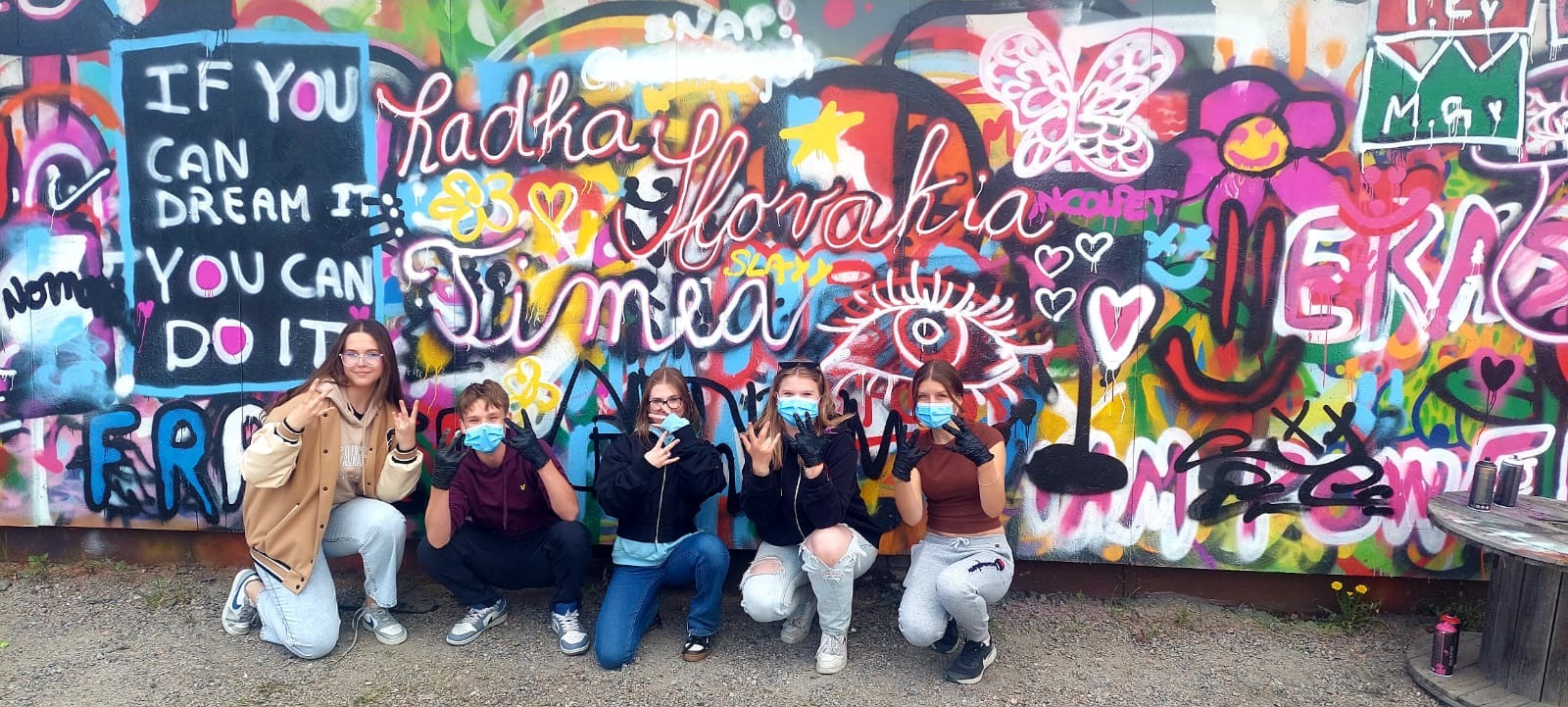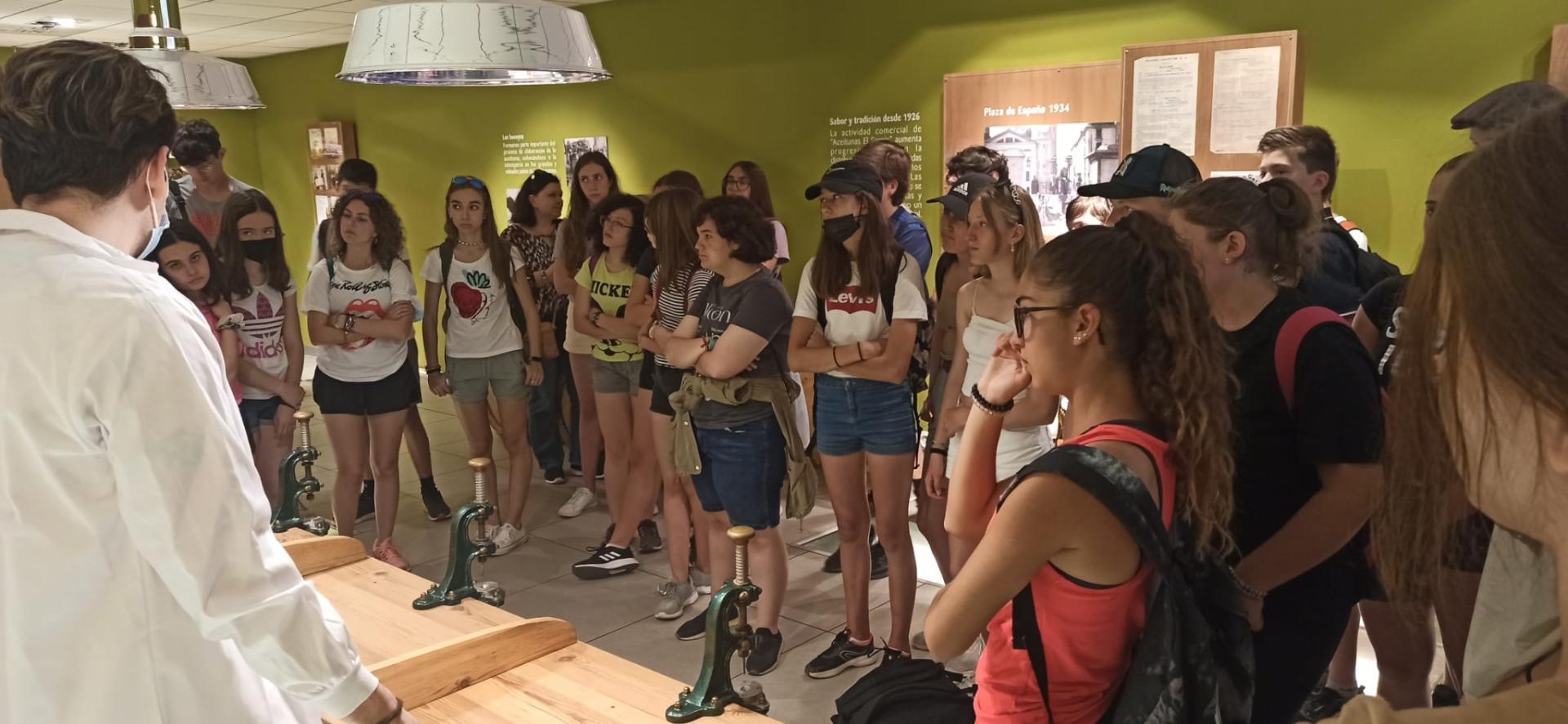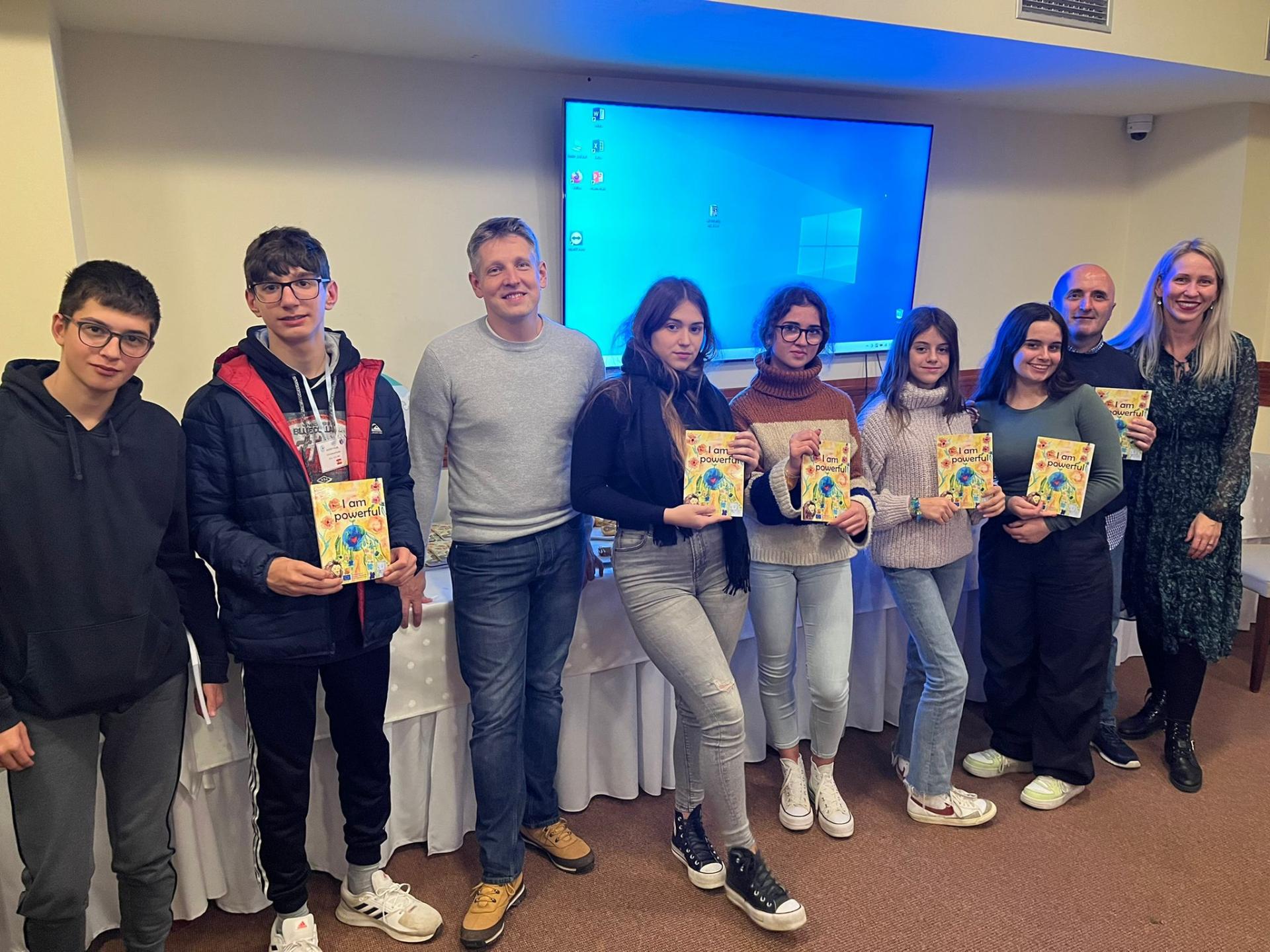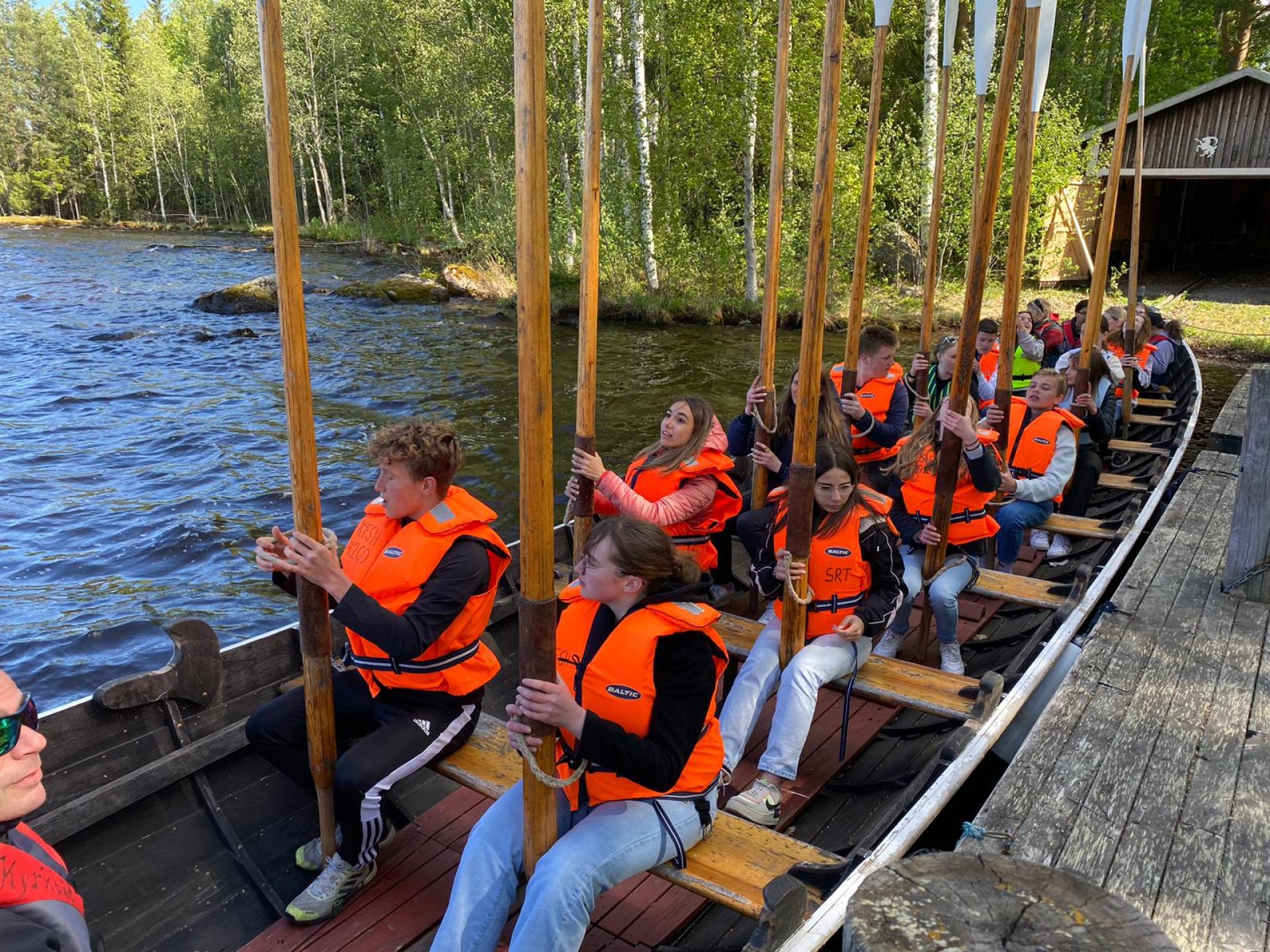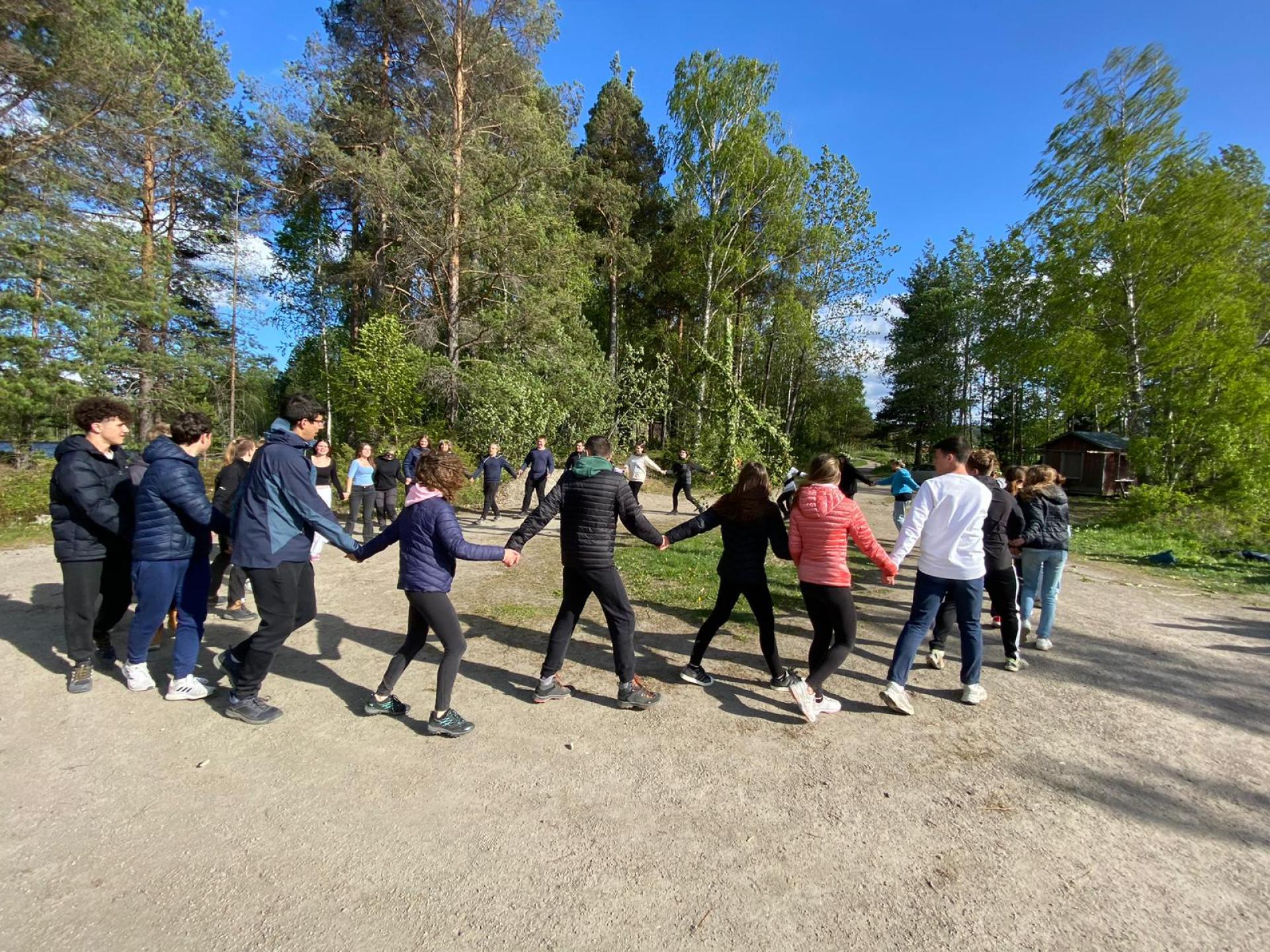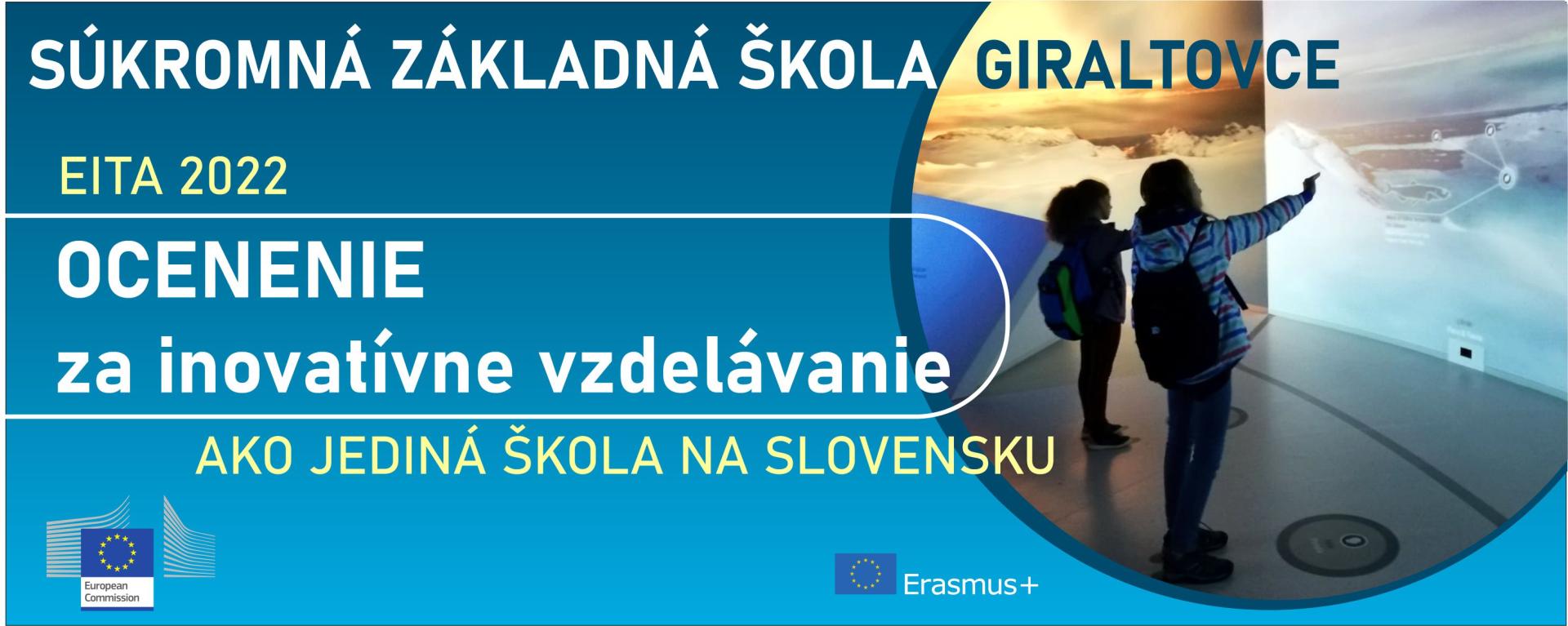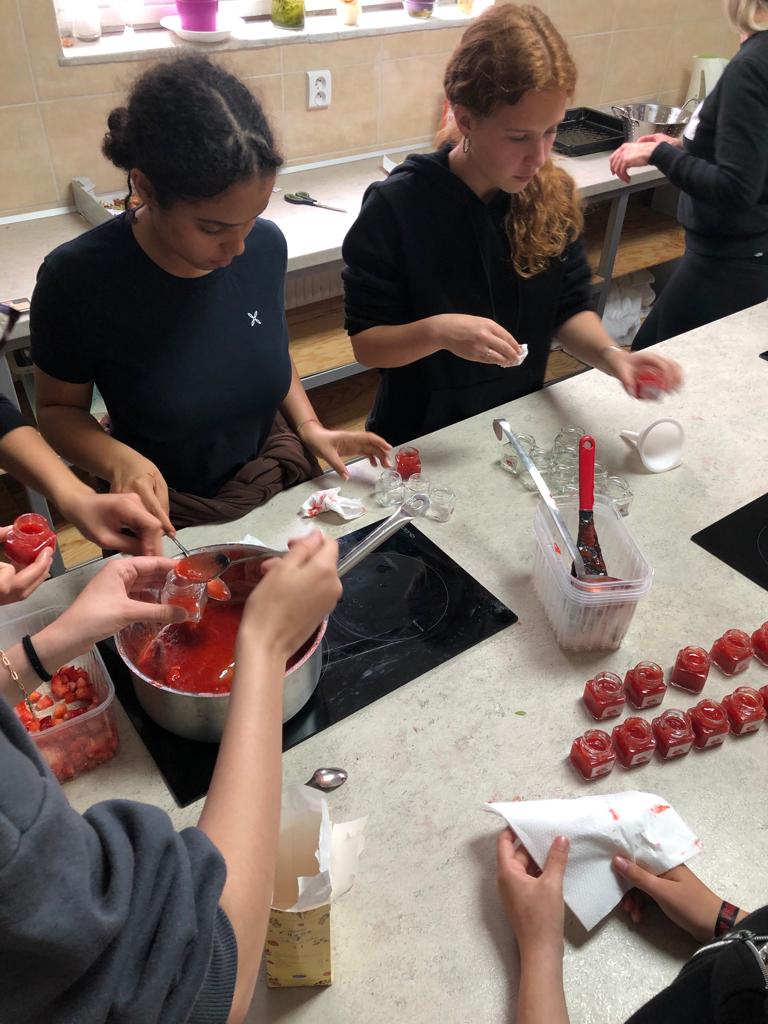I´m powerful
Basic information
Project Title
I´m powerful
Full project title
I am powerful- an educational approach to sustainable living in EU
Category
Shaping a circular industrial ecosystem and supporting life-cycle thinking
Project Description
The aim of the project was to educate students about their own and other partners' local environment, their regional ecosystems and the problems and issues facing their regions with the resolve of finding feasible ways of protecting and sustaining the place of living and sharing this information with the local community. Partnership of four countries from different parts of
Europe helps deeper understand and practise issues connected with living in EU
Europe helps deeper understand and practise issues connected with living in EU
Geographical Scope
Cross-border/international
Project Region
CROSS-BORDER/INTERNATIONAL: France, Slovakia, Spain, Sweden
Urban or rural issues
It addresses urban-rural linkages
Physical or other transformations
It refers to other types of transformations (soft investment)
EU Programme or fund
Yes
Which funds
ERASMUS
Description of the project
Summary
The EU is largely considered as a cornerstone of European stability and prosperity. For much of the last decade, however, many EU countries have faced considerable economic, social, climatic and environmental difficulties, many students have lost interest in scientific topics and became ignorant to the environment within their own local region, not to mention the environment on European scale. Due to their dense curriculum, most schools cannot bridge this gap in knowledge of future challenges, nor create a lasting appreciation and respect for the place we live in.
The aim of the project was to educate students about their own and other partners' local environment, their regional ecosystems and
the problems and issues facing their regions with the resolve of finding feasible ways of protecting and sustaining the
place of living and sharing this information with the local community. Partnership of four countries from different parts of Europe helped deeper understand and practise issues connected with living in EU. All participants were students of secondary schools at the age 10- 15. The number of participants who took part in the
project directly was about 500. The good practices and gathered knowledge was clustered so these can benefit all members of the schools’ communities.
Various activities such as lectures given by experts, practical workshops, field trips, recycling, plogging, creative writing and drawing will take place in order to met our project objectives. All of the activities were based on project/ inquiry based learning so learning process was taken out of the
classroom and with the help of experts students saw , then learnt about the challenges EU is facing, then adapted it and
in the particular final products brought it back to school or local society as a way of sustainable living.
The aim of the project was to educate students about their own and other partners' local environment, their regional ecosystems and
the problems and issues facing their regions with the resolve of finding feasible ways of protecting and sustaining the
place of living and sharing this information with the local community. Partnership of four countries from different parts of Europe helped deeper understand and practise issues connected with living in EU. All participants were students of secondary schools at the age 10- 15. The number of participants who took part in the
project directly was about 500. The good practices and gathered knowledge was clustered so these can benefit all members of the schools’ communities.
Various activities such as lectures given by experts, practical workshops, field trips, recycling, plogging, creative writing and drawing will take place in order to met our project objectives. All of the activities were based on project/ inquiry based learning so learning process was taken out of the
classroom and with the help of experts students saw , then learnt about the challenges EU is facing, then adapted it and
in the particular final products brought it back to school or local society as a way of sustainable living.
Key objectives for sustainability
By leading pupils to learn, see/ practise, but mainly adapt and share their knowledge we intended to foster the acquisition and transfer of the necessary knowledge, skills, attitudes and behavior with reference to the protection of the environment and sustainable development of EU . Various activities such as lectures given by experts, practical
workshops, field trips, recycling, plogging, creative writing and drawing will take place in order to meet our project
objectives. All of the activities were based on project/ inquiry based learning so learning process was taken out of the
classroom and with the help of experts studentsl saw , then learnt about the challenges EU is facing, then adapted it and
in the particular final products brought it back to school or local society as a way of sustainable living
The main results of the project were aimed to change the behaviour/ attittude of students within their vicinity, so we intended
to produce information graffiti wall, a book of stories with the theme of climate changes and its results, make a didactical
tool out of recycled materials found at school premises as well as promote local production.
The produced results and effects should help tailor the curriculum, workplace learning and skills to pupils’ needs and the
expectations of future European citizen and the labour market. The participation in the project ensured that the best
practices are passed on to the entire school communities and other interested organisations. We established
valuable long term relationships with local companies and experts.
workshops, field trips, recycling, plogging, creative writing and drawing will take place in order to meet our project
objectives. All of the activities were based on project/ inquiry based learning so learning process was taken out of the
classroom and with the help of experts studentsl saw , then learnt about the challenges EU is facing, then adapted it and
in the particular final products brought it back to school or local society as a way of sustainable living
The main results of the project were aimed to change the behaviour/ attittude of students within their vicinity, so we intended
to produce information graffiti wall, a book of stories with the theme of climate changes and its results, make a didactical
tool out of recycled materials found at school premises as well as promote local production.
The produced results and effects should help tailor the curriculum, workplace learning and skills to pupils’ needs and the
expectations of future European citizen and the labour market. The participation in the project ensured that the best
practices are passed on to the entire school communities and other interested organisations. We established
valuable long term relationships with local companies and experts.
Key objectives for aesthetics and quality
Participants of the project achieved following objectives in terms of aesthetics and quality experience:
- A Book of stories/ legends/ tales( based on the theme
of climate change and environmental issues) written
by pupils of all countries.
The book has been published in English language as the main language of the project. Final project was
disseminated among local libraries, schools, local language representants...
Moreover, an e- book was uploaded onto common
website.
- Re- used product
A new product wias created based on findings at
school premises. All material that is not need any
more were converted and used in its new purpose as
a toy for a school club , didactic tool for lessons ...etc
- An interactive map showed the flow of goods within
partner countries. Products were marked with
information about the place of origin, country of
selling and the price.
-Online magazine 1
Each partner school prepared one issue a year,
enriching the publication with interactive elements like
videos or audio files. The magazine monitored all
the activities which were done during
the project. In effort to reach wider audience articles
were written in both English and local language.
Magazines were written by students.
-Graffiti edu wall- each participating organisation
created and displayed posters/ paintings/ drawings on
publicly accessible place with the main theme of the
project and further necessary steps that each
responsible citizen of EU should take in order to
prevent climate changes in the place of life.
- A Book of stories/ legends/ tales( based on the theme
of climate change and environmental issues) written
by pupils of all countries.
The book has been published in English language as the main language of the project. Final project was
disseminated among local libraries, schools, local language representants...
Moreover, an e- book was uploaded onto common
website.
- Re- used product
A new product wias created based on findings at
school premises. All material that is not need any
more were converted and used in its new purpose as
a toy for a school club , didactic tool for lessons ...etc
- An interactive map showed the flow of goods within
partner countries. Products were marked with
information about the place of origin, country of
selling and the price.
-Online magazine 1
Each partner school prepared one issue a year,
enriching the publication with interactive elements like
videos or audio files. The magazine monitored all
the activities which were done during
the project. In effort to reach wider audience articles
were written in both English and local language.
Magazines were written by students.
-Graffiti edu wall- each participating organisation
created and displayed posters/ paintings/ drawings on
publicly accessible place with the main theme of the
project and further necessary steps that each
responsible citizen of EU should take in order to
prevent climate changes in the place of life.
Key objectives for inclusion
Participation and active citizenship of young people starting from pupils age in school and is a fundamental right because they are the main targets of the decisions to be taken; therefore they should have the right, the means and the opportunity to participate and influence decisions, and take part in the actions aiming to build better life, society and future. Students with economic obstacles had the possibility to get support from the school in the form of access to electronic devices that they cannot afford ( such as tablets, GPS devices, laptops...). Schools also sought sponsors that supported students with economic difficulties financially.
Educational difficulties were taken into account by allowing students to work according to their pace and
abilities. Peer teaching methods were used to ease the required knowledge and improve their self-esteem.
Students with educational difficulties had different tasks to work on which ensures successful acquisition of required knowledge.
Educational difficulties were taken into account by allowing students to work according to their pace and
abilities. Peer teaching methods were used to ease the required knowledge and improve their self-esteem.
Students with educational difficulties had different tasks to work on which ensures successful acquisition of required knowledge.
Results in relation to category
The main results of the project were aimed to change the behaviour/ attittude of students within their vicinity, so we intended to produce information graffiti wall, a book of stories with the theme of climate changes and its results, make a didactical
tool out of recycled materials found at school premises as well as promote local production.
Parallel to this our project also strongly aims at improving and developing several skills of our pupils´- English language as well as digital competencies by integrating both skills into the core activities of the project. While they might be insecure
at first, they gained more confidence in their knowledge, competences and language skills since they worked towards a common goal with peers. The various assignments at home and during the exchanges made them more self-reliant. Their built-up confidence empowered them to take initiative and become more inquisitive.
The produced results and effects should help tailor the curriculum, workplace learning and skills to pupils’ needs and the expectations of future European citizen and the labour market. The participation in the project ensured that the best
practices are passed on to the entire school communities and other interested organisations.
Activities and their results that were mantained after the end of EU funding:
-The educational material produced during realization of the project and methodology of the attended activities has been adopted into the curriculum of each school
- All of digital and paper outcomes (CLIL units, maps) were extended school libraries and e-learning platform.
- A graffiti wall placed in the public place is used as learning resourse for everybody
- Recycled products are used for educational purpose
- A book was published and disseminated to local school/ organisations, it is also available online (school website)
The results of project outcomes were disseminated through official EU canals such as Project Results Platform, Twinspace.
tool out of recycled materials found at school premises as well as promote local production.
Parallel to this our project also strongly aims at improving and developing several skills of our pupils´- English language as well as digital competencies by integrating both skills into the core activities of the project. While they might be insecure
at first, they gained more confidence in their knowledge, competences and language skills since they worked towards a common goal with peers. The various assignments at home and during the exchanges made them more self-reliant. Their built-up confidence empowered them to take initiative and become more inquisitive.
The produced results and effects should help tailor the curriculum, workplace learning and skills to pupils’ needs and the expectations of future European citizen and the labour market. The participation in the project ensured that the best
practices are passed on to the entire school communities and other interested organisations.
Activities and their results that were mantained after the end of EU funding:
-The educational material produced during realization of the project and methodology of the attended activities has been adopted into the curriculum of each school
- All of digital and paper outcomes (CLIL units, maps) were extended school libraries and e-learning platform.
- A graffiti wall placed in the public place is used as learning resourse for everybody
- Recycled products are used for educational purpose
- A book was published and disseminated to local school/ organisations, it is also available online (school website)
The results of project outcomes were disseminated through official EU canals such as Project Results Platform, Twinspace.
How Citizens benefit
Each activity of the consisted of four basic stages:
STAGE 1 `I learn.´
Participants got the knowledge, explored, recorded and read all the basic information about the EU, its problems and challenges EU faces in the form of lectures, debates, videos and visits of scientists and experts at participating schools.
STAGE 2 - `I go and see.´
The students visited local producers, companies, national parks, gardens, research centres, waste disposal or recycling facilities and identified and explained what they have previously learned. The results were produced in form of :
- a CLIL worksheet that could be used in classroom
- an action plans to good practice stating practical tips for promoting the particular issues
STAGE 3 - `I adapt.´
What really happens if we aquire the knowledge, skills, values and attitutes? Crutial aim is to adapt gathered
knowledge into the everyday life, so all information and collected material were used to produce the following
products of the project and reflected deeper understanding of the problems we have solved:
1.) Recycled products- remade for the educational purpose for individuals, schools, kindengardens....
2.) Graffiti wall- a public painted place with the ideas of the necessity of caring about the environment, it can be
used as demonstrative tool during the multidisciplinary lessons.
3. ) My country, my pride- fair- traditional and local goods presented to students, parents, public and participants
during LTT activities
4.) A book- environmental and climate change stories written by pupils that develop reading and environmental literacy.
STAGE 4- ´I share.´
All actvities were disseminated through the articles in the local media, website, online magazines, boards, but
also through the activities connected with public presentation of final products (the book, graffiti wall, fair...)
STAGE 1 `I learn.´
Participants got the knowledge, explored, recorded and read all the basic information about the EU, its problems and challenges EU faces in the form of lectures, debates, videos and visits of scientists and experts at participating schools.
STAGE 2 - `I go and see.´
The students visited local producers, companies, national parks, gardens, research centres, waste disposal or recycling facilities and identified and explained what they have previously learned. The results were produced in form of :
- a CLIL worksheet that could be used in classroom
- an action plans to good practice stating practical tips for promoting the particular issues
STAGE 3 - `I adapt.´
What really happens if we aquire the knowledge, skills, values and attitutes? Crutial aim is to adapt gathered
knowledge into the everyday life, so all information and collected material were used to produce the following
products of the project and reflected deeper understanding of the problems we have solved:
1.) Recycled products- remade for the educational purpose for individuals, schools, kindengardens....
2.) Graffiti wall- a public painted place with the ideas of the necessity of caring about the environment, it can be
used as demonstrative tool during the multidisciplinary lessons.
3. ) My country, my pride- fair- traditional and local goods presented to students, parents, public and participants
during LTT activities
4.) A book- environmental and climate change stories written by pupils that develop reading and environmental literacy.
STAGE 4- ´I share.´
All actvities were disseminated through the articles in the local media, website, online magazines, boards, but
also through the activities connected with public presentation of final products (the book, graffiti wall, fair...)
Physical or other transformations
It refers to other types of transformations (soft investment)
Innovative character
A realization of the project brough the unique gained knowledge about best practices and prompting and improving pupils’ sense of Eu politics in the field of
climate, environment, economy and citizenship it helped to create better learning opportunities for the following generations. The
teachers had to question their methods and acquire new learning, teaching and training techniques, thus becoming more competent and having better tools for a high-quality education which faces actual problems of EU. The produced results and effects helped tailor the curriculum, workplace learning and skills to pupils’ needs and the expectations of future european citizen and the labour market. The project provided a better insight into the European politics and
the differences and similarities between partner countries. The participation in the project ensured that the best practices are passed on to the entire school communities and other interested organisations. We established valuable long term relationships with local companies. Furthermore, we wanted to acquire valuable communication techniques which are useful in a professional setting and can
help improve our pupils’ language skills. They will have a better insight in their own talents and through this they can explore new opportunities. We will consider organising open green days and life cycle days
at each school.
climate, environment, economy and citizenship it helped to create better learning opportunities for the following generations. The
teachers had to question their methods and acquire new learning, teaching and training techniques, thus becoming more competent and having better tools for a high-quality education which faces actual problems of EU. The produced results and effects helped tailor the curriculum, workplace learning and skills to pupils’ needs and the expectations of future european citizen and the labour market. The project provided a better insight into the European politics and
the differences and similarities between partner countries. The participation in the project ensured that the best practices are passed on to the entire school communities and other interested organisations. We established valuable long term relationships with local companies. Furthermore, we wanted to acquire valuable communication techniques which are useful in a professional setting and can
help improve our pupils’ language skills. They will have a better insight in their own talents and through this they can explore new opportunities. We will consider organising open green days and life cycle days
at each school.
Disciplines/knowledge reflected
Partners worked at the same pace and their participation in the realisation of the project was of equal value. The coordinator of the project was accountable for organizing cooperative communication between the partner schools, encouraging each school’s participation by summoning a monthly virtual meeting. -Each country had a project leader, supported by a team of colleagues,responsible for overseeing the logistics in loco, ensuring that aims are fulfilled and solving eventual problems. - English was the working language of the project. All participants were assessed on their English skills; results were uploaded to Twinspace.
COMMON TASKS: - environmental politics and education
- implemenation of results into each school curriculum
fulfilling an impact assessment strategy
- promoting the project
SPECIFIC TASKS: SLOVAKIA (coordinator)
- organized/monitored of the common project website
-provided guidance and expertise of an online magazine
an open source app. for digital magazine publishing
-oversaw GPS tracks taken during field trips
-prepared a book ready to publish and print
- organized public launch of the book
SPAIN: - organized/ oversough of the common Etwinning project
- prepared online quizzes, assessments, reports to assess English and science/ environmental skills and attitudes
- responsible for methodological use of collected materials for young learners
SWEDEN:- topics and tasks connected to the subject of biology, environmental science and innovative IT applications for use in schools,
- use of digital media tools such as shooting, creating, editing films and videos and their uploading to Etwinning
FRANCE: - ICT tools including online interactive maps and advising the others how to use them. -- prepared guides for using Project based learning
- the supervisor of creating recycled products in educational way Good cooperation and communication will be possible thanks to the following
COMMON TASKS: - environmental politics and education
- implemenation of results into each school curriculum
fulfilling an impact assessment strategy
- promoting the project
SPECIFIC TASKS: SLOVAKIA (coordinator)
- organized/monitored of the common project website
-provided guidance and expertise of an online magazine
an open source app. for digital magazine publishing
-oversaw GPS tracks taken during field trips
-prepared a book ready to publish and print
- organized public launch of the book
SPAIN: - organized/ oversough of the common Etwinning project
- prepared online quizzes, assessments, reports to assess English and science/ environmental skills and attitudes
- responsible for methodological use of collected materials for young learners
SWEDEN:- topics and tasks connected to the subject of biology, environmental science and innovative IT applications for use in schools,
- use of digital media tools such as shooting, creating, editing films and videos and their uploading to Etwinning
FRANCE: - ICT tools including online interactive maps and advising the others how to use them. -- prepared guides for using Project based learning
- the supervisor of creating recycled products in educational way Good cooperation and communication will be possible thanks to the following
Methodology used
All of the activities were based on project/ inquiry based learning so learning process was taken out of the
classroom and with the help of experts students saw , then learnt about the challenges EU is facing, then adapted it and
in the particular final products brough it back to school or local society as a way of sustainable living. By the participation in the activities pupils shared enriching educational experiences with European partners. Cooperated internationally on solving environmental issues. -Gained ecological habits which can make a difference for their future. -Developed reflexive sensible thinking and concern for the planet. -Became aware of the importance of reusing materials as well as find efficient uses for waste. -Understood the significance of recycling and correct waste management: circular economy. -Improved their command of the English language by becoming active European protagonists. The activities focused on active and dynamic learning where pupils explored real-world problems and challenges and aquired deeper knowledge. They were arranged to open their minds to see all the European neighbors as an essential part in the process of creating the necessary changes in our society in order to secure our collective future on this planet.
classroom and with the help of experts students saw , then learnt about the challenges EU is facing, then adapted it and
in the particular final products brough it back to school or local society as a way of sustainable living. By the participation in the activities pupils shared enriching educational experiences with European partners. Cooperated internationally on solving environmental issues. -Gained ecological habits which can make a difference for their future. -Developed reflexive sensible thinking and concern for the planet. -Became aware of the importance of reusing materials as well as find efficient uses for waste. -Understood the significance of recycling and correct waste management: circular economy. -Improved their command of the English language by becoming active European protagonists. The activities focused on active and dynamic learning where pupils explored real-world problems and challenges and aquired deeper knowledge. They were arranged to open their minds to see all the European neighbors as an essential part in the process of creating the necessary changes in our society in order to secure our collective future on this planet.
How stakeholders are engaged
1. Teachers were chosen among the school staff according to their disciplinary field, the contact teachers taking a leading role. The teachers participated by guiding the students in preparing the project results, creating and exchanging innovative teaching materials and tools, and participating in project mobilities as accompanying persons.
2.The students involved in the project activities, aging between 11 and 15 years, depending on the partner school.
3.Parents participated by helping in the preparation of the European exchange market, as well as in hosting LTT activities.
4. Local representatives from national parks, nature reserves, environmentally friendly companies, waste disposal companies, educational bodies and other institutions,that they shared their knowledge of their field of work.
5. Professional institutions and stakeholders: helped participants to meet their project goals by sharing their knowledge. On the other hand, a school project helped present their work on international level. The places which were visited during the project, provided us with guides.
The visited places were old factories, agricultural dwellings, museums, natural parks, gardens, skanzens, orchards, meadows, forests and caves.
All involved people helped us understand all these project related processes will also gain valuable experience from each visit when working with international groups of students as well as form new point of learning goals
6. Small enterprices: During international and also national mobilities they profited economically because schools used their services( accommodation, catering, tour guiding) .
The people involved in the project were guiding us (participating schools) in the process of understanding the topics of preserving natural heritage and on the other hand international school project gave them a good oportunity for future collaboration with the schools.
2.The students involved in the project activities, aging between 11 and 15 years, depending on the partner school.
3.Parents participated by helping in the preparation of the European exchange market, as well as in hosting LTT activities.
4. Local representatives from national parks, nature reserves, environmentally friendly companies, waste disposal companies, educational bodies and other institutions,that they shared their knowledge of their field of work.
5. Professional institutions and stakeholders: helped participants to meet their project goals by sharing their knowledge. On the other hand, a school project helped present their work on international level. The places which were visited during the project, provided us with guides.
The visited places were old factories, agricultural dwellings, museums, natural parks, gardens, skanzens, orchards, meadows, forests and caves.
All involved people helped us understand all these project related processes will also gain valuable experience from each visit when working with international groups of students as well as form new point of learning goals
6. Small enterprices: During international and also national mobilities they profited economically because schools used their services( accommodation, catering, tour guiding) .
The people involved in the project were guiding us (participating schools) in the process of understanding the topics of preserving natural heritage and on the other hand international school project gave them a good oportunity for future collaboration with the schools.
Global challenges
The gained knowledge about best practices and prompting and improving pupils’ sense of Eu politics in the field of
climate, environment and citizenship helped create better learning opportunities for the following generations. The
teachers had to question their methods and acquire new learning, teaching and training techniques, thus becoming
more competent and having better tools for a high-quality education which faces actual problems of EU. The produced
results and effects should help tailor the curriculum, workplace learning and skills to pupils’ needs and the expectations
of future european citizen and the labour market. The project provided a better insight into the European politics and
the differences and similarities between partner countries. The participation in the project ensured that the best
practices are passed on to the entire school communities and other interested organisations. We established
valuable long term relationships with local companies.
Furthermore, we want to acquire valuable communication techniques which are useful in a professional setting and can
helped improve our pupils’ language skills. They have a better insight in their own talents and through this they can
explore new opportunities. We considered organising open green days
at each school.
We are convinced that the pupils' intellectual and personal development benefit since they were taken out of their
comfort zone. This way they gained confidence, become openminded and responsible for the action taken.They
passed this on to others. It also strengthened teacher-student relationships
climate, environment and citizenship helped create better learning opportunities for the following generations. The
teachers had to question their methods and acquire new learning, teaching and training techniques, thus becoming
more competent and having better tools for a high-quality education which faces actual problems of EU. The produced
results and effects should help tailor the curriculum, workplace learning and skills to pupils’ needs and the expectations
of future european citizen and the labour market. The project provided a better insight into the European politics and
the differences and similarities between partner countries. The participation in the project ensured that the best
practices are passed on to the entire school communities and other interested organisations. We established
valuable long term relationships with local companies.
Furthermore, we want to acquire valuable communication techniques which are useful in a professional setting and can
helped improve our pupils’ language skills. They have a better insight in their own talents and through this they can
explore new opportunities. We considered organising open green days
at each school.
We are convinced that the pupils' intellectual and personal development benefit since they were taken out of their
comfort zone. This way they gained confidence, become openminded and responsible for the action taken.They
passed this on to others. It also strengthened teacher-student relationships
Learning transferred to other parties
All actvities will be disseminated through the articles in the local media, website, online magazines, boards, but
also through the activities connected with public presentation of final products (the book, graffiti wall, fair...). They can represent ,,an inspirational library" of the the activities connected with the severel topis:
1. A part of me in you- economic approach to sustainable development of EU, comparing local/imported products, teaching students to pick wise decisions,
2 .Reduce, recycle, reuse- to raise awareness about waste reduction, product reuse and material recycling
strategies in daily life of students
3. Climate unites us- educational approach to Eu politics in the field of climate change, reducing greenhouse
gases, changing daily habits of young generation,
4. Bridging the gap between the past and the future- studying past approach to the Nature and creating possible
solutions on the form of book of stories.
The results of the project that can be replicated or tranferred to other places, beneficiaries:
1.) Recycled products- remade for the educational purpose for individuals, schools, kindengardens....
2.) Graffiti wall- a public painted place with the ideas of the necessity of caring about the environment, it can be
used as demonstrative tool during the multidisciplinary lessons.
3. ) My country, my pride- fair- traditional and local goods presented to students, parents, public and participants
4.) A book- environmental and climate change stories written by pupils that develop reading and environmental
literacy
also through the activities connected with public presentation of final products (the book, graffiti wall, fair...). They can represent ,,an inspirational library" of the the activities connected with the severel topis:
1. A part of me in you- economic approach to sustainable development of EU, comparing local/imported products, teaching students to pick wise decisions,
2 .Reduce, recycle, reuse- to raise awareness about waste reduction, product reuse and material recycling
strategies in daily life of students
3. Climate unites us- educational approach to Eu politics in the field of climate change, reducing greenhouse
gases, changing daily habits of young generation,
4. Bridging the gap between the past and the future- studying past approach to the Nature and creating possible
solutions on the form of book of stories.
The results of the project that can be replicated or tranferred to other places, beneficiaries:
1.) Recycled products- remade for the educational purpose for individuals, schools, kindengardens....
2.) Graffiti wall- a public painted place with the ideas of the necessity of caring about the environment, it can be
used as demonstrative tool during the multidisciplinary lessons.
3. ) My country, my pride- fair- traditional and local goods presented to students, parents, public and participants
4.) A book- environmental and climate change stories written by pupils that develop reading and environmental
literacy
Keywords
-economy (international and local transport of goods in EU)
-environmental issues (reuse, reduce, recycle)
climate changes with emphasis on oceans and water in Spain, animal habitat in France, plants in Sweden and forests, natural disasters and weather changes in Slovakia
-increasing literacy (reading, financial, environmental and ICT).
- life cycle

